As the saying goes—you are what you eat. When it comes to maintaining a healthy diet, it’s not just about how much you eat but which foods you are consuming.
Nutrition is “one of the best tools” we’ve got to prevent and help “reduce the risk of chronic disease,” advises the Office of Disease Prevention and Health Promotion (ODPHP).
The U.S. Department of Agriculture says: “As you age, maintaining healthy habits is an important way to lower your risk for cancer, diabetes, heart disease and hypertension. Make your food and beverage choices a priority and stay physically active.”
Here nutritionists outline 3 foods to never eat and other items which should be a part of our regular diet, including some “superfoods.”
The Worst Foods to Eat
Registered dietitian (RD) Luke Corey, who works with Mayo Clinic Orthopedics and Sports Medicine in Rochester, Minnesota, told Newsweek: “The worst foods to eat are those that are high in calories, but low in healthy nutrients such as essential vitamins and minerals.” Such food items include the following:
- Sodas
- Pastries
- Cakes
- Fried foods
- Some baked goods
- Bacon
- Sausages
- Frozen meals
- Other highly processed foods
“Many of these foods are also high in sodium and added sugar, which can contribute to serious disease and health conditions,” the RD warned.
The ODPHP also advises you should check food labels and buy items that come with less added sugars, sodium and saturated fat.
Added sugars include sweeteners with calories that food companies add to various food and drink items or sweeteners you add to the food yourself at home.
Sodium comes from salt and most of our sodium consumption is from packaged foods and meals at restaurants. The ODPHP recommends flavoring foods with herbs and spices instead of salt to cut down on sodium.
Saturated fats are found in higher amounts in animal-based foods such as butter, cheese, whole milk and fatty meats such as sausages and ribs. But they’re also present in plant-based items such as coconut oil and palm oil. Opt instead for foods containing unsaturated fats, such as nuts, seeds and seafood, the ODPHP advised.
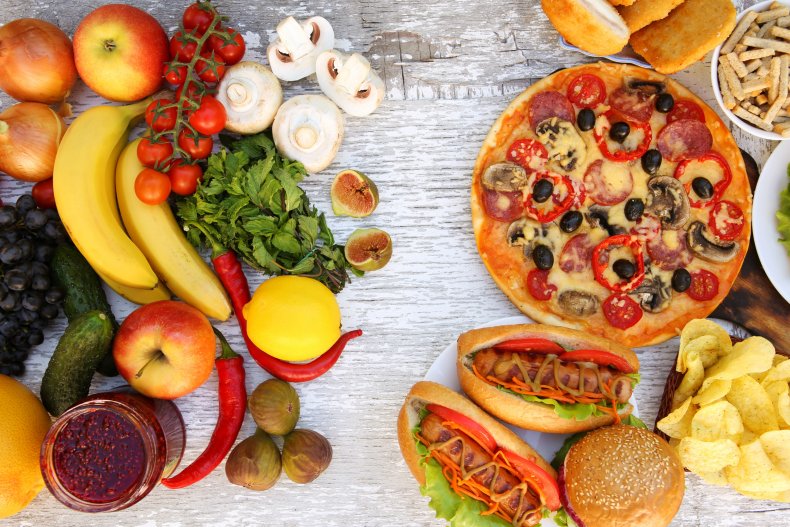
iStock/Getty Images Plus
Nancy Clark, an RD and sports nutritionist who is a member of the American College of Sports Medicine (ACSM), told Newsweek: “There is not a good food or a bad food. Rather, there is a balanced diet and an unbalanced diet.”
For example, an apple counts as a “good” food but a diet consisting of only apples is “a very bad, unbalanced diet,” she noted.
Often items like cakes are labeled as “bad” but something like a birthday cake “should be enjoyed with friends and family” and can be included as part of an overall balanced diet for the day and week.
“Eating is not cheating,” Clark explained. “I have too many clients who fail to eat birthday cake, putting themselves on “a pedestal of nutrition superiority,” which makes others feel guilty for eating birthday cake, she said.
According to ConscienHealth, in one randomized controlled trial no difference in fat mass or measures of glucose control was found between two study groups eating controlled portions of fries or almonds over 30 days.
“No single food in isolation is going to make a person fat or ruin their health. What matters more is how individual foods fit into an overall pattern of eating. Because so many factors are in play when we eat every day, many healthy patterns for eating are possible,” ConscienHealth said. “The important thing is for each person to find a pattern that works for them.”
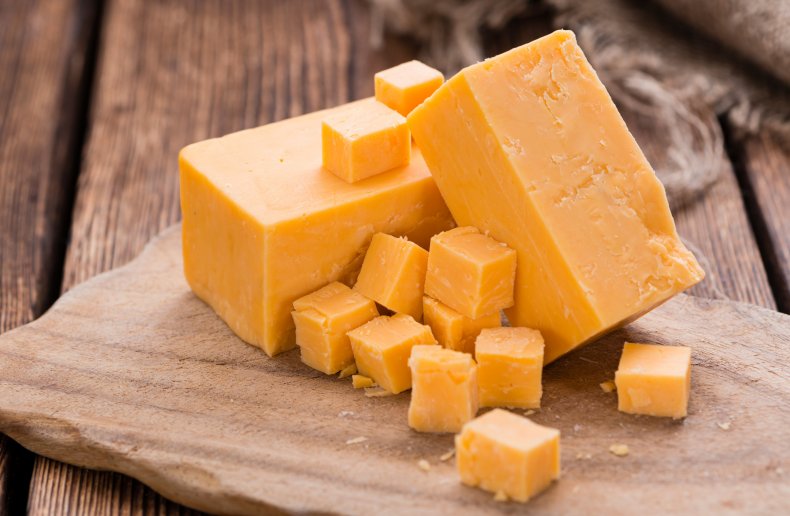
iStock/Getty Images Plus
Top Foods to Avoid
Allyson Gottfried, a certified nutritionist and Club Pilates XPRO for Xponential+, told Newsweek you should avoid anything that’s highly processed, full of sugar or filled with chemicals. “If you’re unsure, read the ingredients,” she said.
Corey noted: “I would never say you can’t eat a certain food. Rather, I would say only consume the following items on rare occasions.”
Corey’s Pick of 3 Worst Foods to Never Eat
1. Frozen Pizza
Many of the available frozen pizza options are high in calories, sodium, sugar and saturated fat and low in other beneficial nutrients, the Mayo Clinic RD said.
2. Regular Soda
Sodas are very easy to consume in large quantities, which can contribute a large amount of calories consumed as well as added sugar. “This can lead to weight gain and other detrimental health conditions,” Corey warned.
3. Processed Meats
Foods such as bacon, sausages and some deli meats are not only high in calories and sodium, but also in saturated fat as well as some nitrates and nitrites. This can “all contribute to various health conditions and disease,” he said.
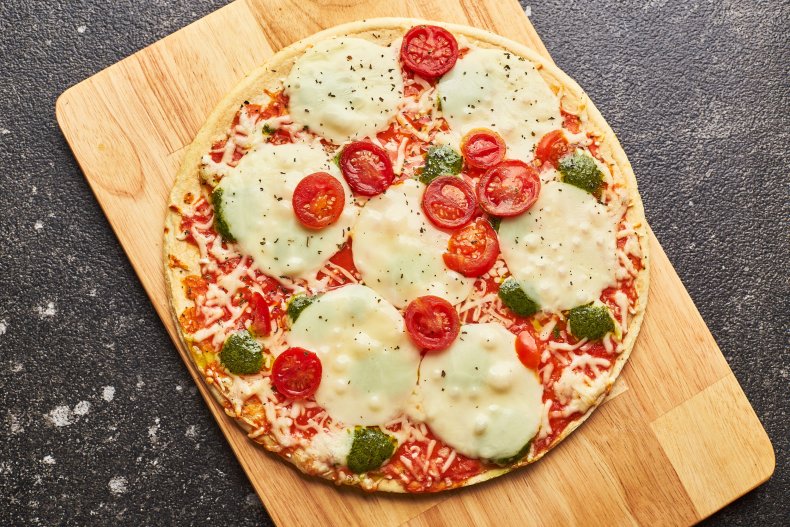
iStock/Getty Images Plus
Gottfried’s Pick of 3 Worst Foods to Avoid
1. Highly Processed Deli Meats
The nutritionist also advised staying away from highly processed deli meats as they’re usually filled with large amounts of sodium and chemicals such as nitrites and nitrates. “These preservatives and chemicals have been associated as contributors to various cancers and heart disease,” she warned.
2. Sugary Coffee Drinks
Gottfried recommends omitting sugary coffee drinks from your diet. Many people are accustomed to starting their day (and also fueling up midday) with a 20-ounce coffee drink, which has close to 600 calories and “off-the-charts” amounts of sugar and caffeine, the nutritionist noted.
“That amount of sugar taken daily can be toxic and dangerous to our long term health by increasing the risk of heart disease, obesity, high blood pressure and inflammation,” she said.
3. Sugary Cereals
For the same reasons why you should stay clear of sugary coffee drinks, Gottfried also warns people to avoid sugary cereals, as they are also “so heavily processed and stripped from any real nutrition.”

iStock/Getty Images Plus
Healthy Foods to Eat Everyday
Corey said the healthy foods to eat everyday include “essentially the opposite of what not to eat.”
You want to stick with foods that are lower in calories, sodium and added sugar, but high in essential nutrients. These include items like fresh and colorful fruits (apples, grapefruit, bananas, papaya) and vegetables (such as broccoli, sweet potatoes, beets, spinach, peppers) as well as complex carbohydrates, healthy fats and lean proteins.
Below are some of the healthy foods recommended by Corey and Gottfried:
Complex Carbohydrates
Gottfried noted that quinoa is not a grain but actually a seed. It has all nine amino acids making it one of the few vegan options to be considered a complete protein, she said.
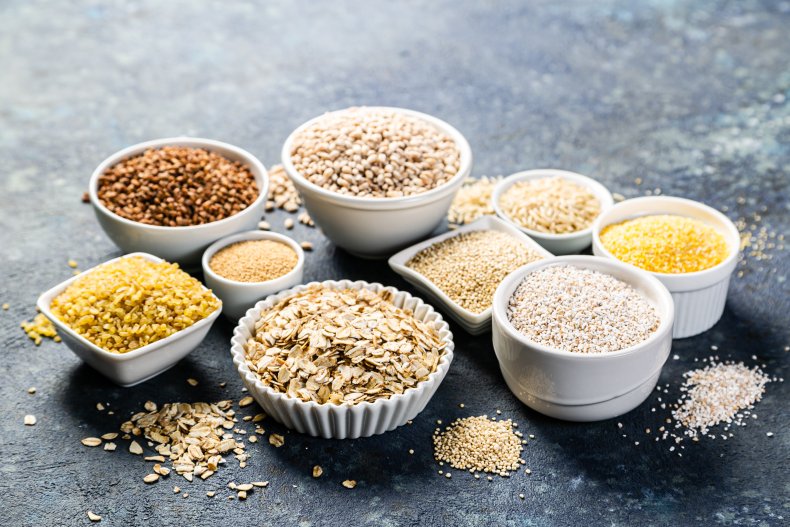
iStock/Getty Images Plus
Healthy Fats
Gottfried explained: “We need healthy good fat to burn fat. So, dress your salads with extra virgin olive oil, slice up half an avocado or enjoy a snack of roasted almonds or walnuts. They all offer healthy unsaturated fats that keep our body working like a well-oiled machine.”
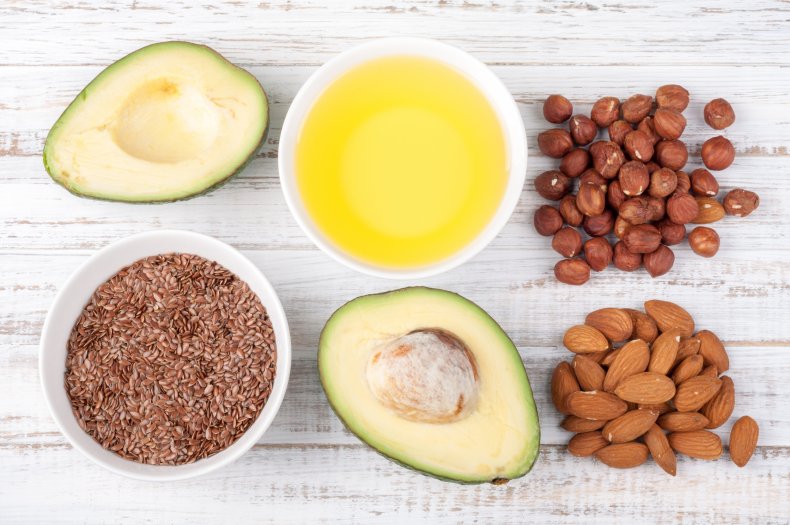
Lean Protein
- Chicken
- Fish
- Beans
- Lentils
- Eggs
Gottfried: “I’m a big fan of eggs. An egg is a well rounded food offering a ton of nutrition like healthy fat and protein in a single serving. It’s what I call a perfect food.”
The ACSM’s Clark suggests taking a more holistic approach to our diet, looking at “all the foods in the meal and in the whole day’s intake.”
A healthy diet can consist of 85 to 90 percent “quality calories” and 10 to 15 percent of
“whatever.” Sometimes that “whatever” can be blueberries and sometimes it can be blueberry pie, she explained.
Superfoods to Add to Your Diet
Dark Leafy Greens
These include vegetables like kale, swiss chard, spinach and collard greens. “These are rich in folate, zinc, calcium, iron, magnesium, vitamin C and fiber,” Corey said.
Gottfried noted dark leafy greens are a great natural source of calcium, iron, magnesium, fiber, folate and potassium. “It seems so obvious, yet few people meet the minimum USDA [U.S. Department of Agriculture] recommendations for the daily intake of greens. They are easy to add to any salad or side dish,” she said.
Leafy greens are also a “solid source” of calcium especially for those looking for dairy free options, she added.
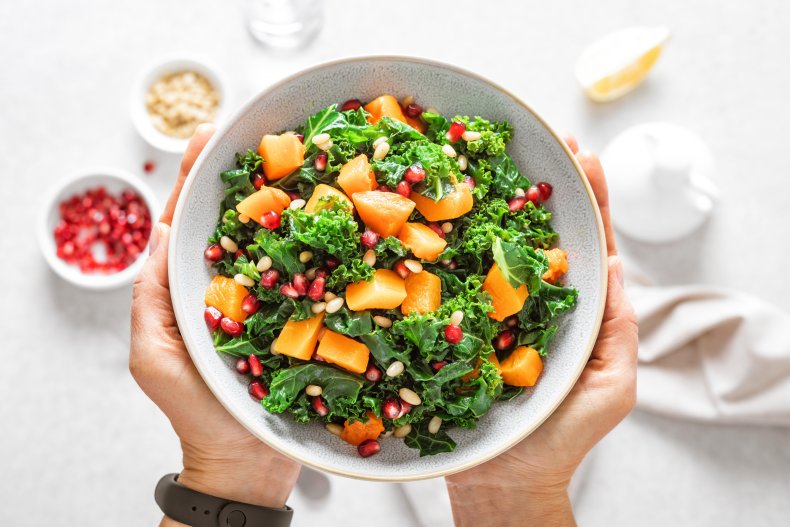
iStock/Getty Images Plus
Berries
Blueberries, blackberries, raspberries and strawberries are “nutritional powerhouses” that are rich in vitamins, minerals, fiber and antioxidants, the Mayo Clinic RD noted.
Gottfried added berries are full of nutrients while lower in sugar and calories than other foods.
Spices
Corey said spices like turmeric and ginger are rich in antioxidants and anti-inflammatory properties.
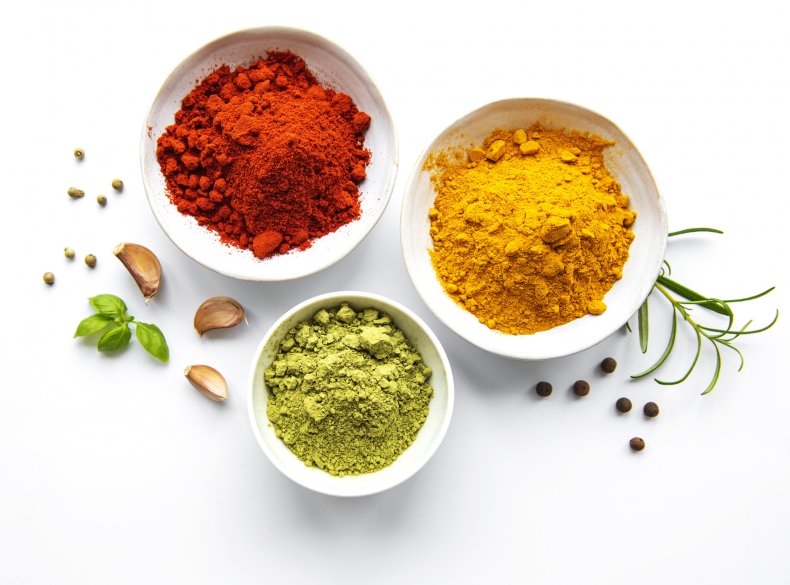
iStock/Getty Images Plus
Salmon
Gottfried also recommends salmon, which is rich in omega-3 fatty acids, be included in your diet.
Chia Seeds
Chia seeds are nutrient-rich and serve as a good source of omega-3 fatty acids and an excellent source of fiber, protein, vitamins, minerals and antioxidants, according to Gottfried.
Green Tea
Green tea is powerful for reducing inflammation in the body with its “polyphenol antioxidants,” explained Gottfried.
It contains bioactive compounds that may improve brain function, protect the brain from aging, reduce the risk of some cancers and help prevent cardiovascular disease and even increase fat burn, she said.
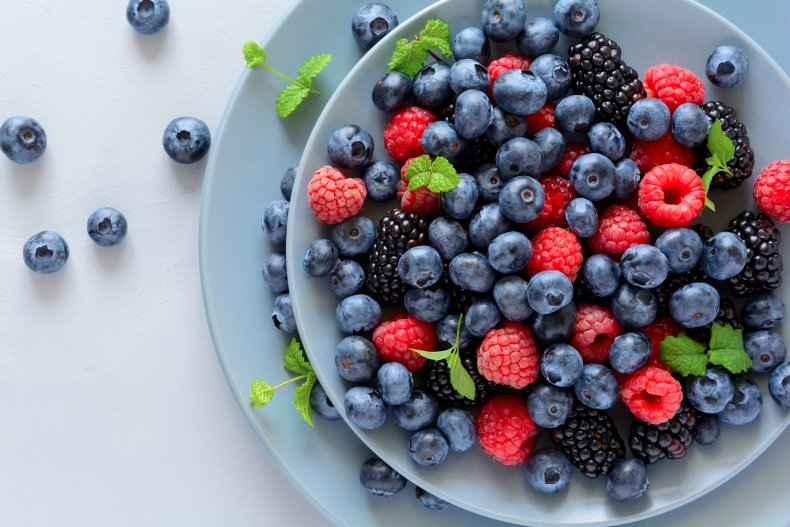
iStock/Getty Images Plus
